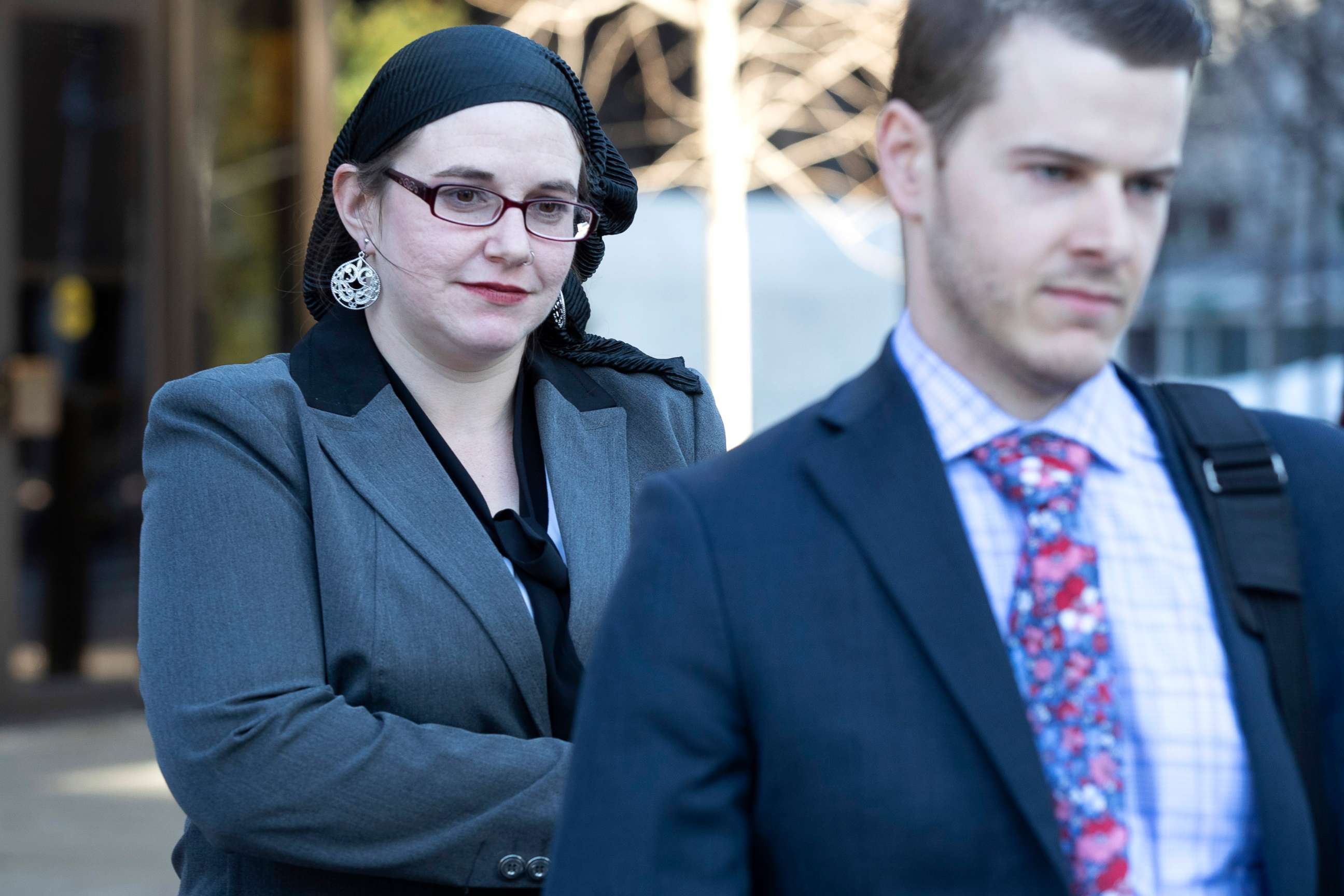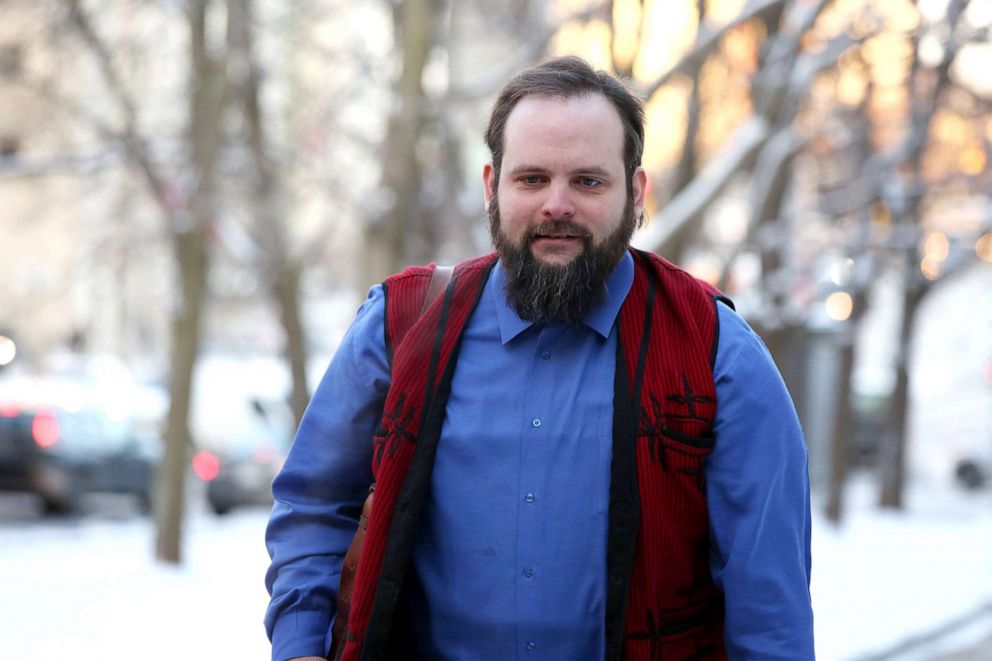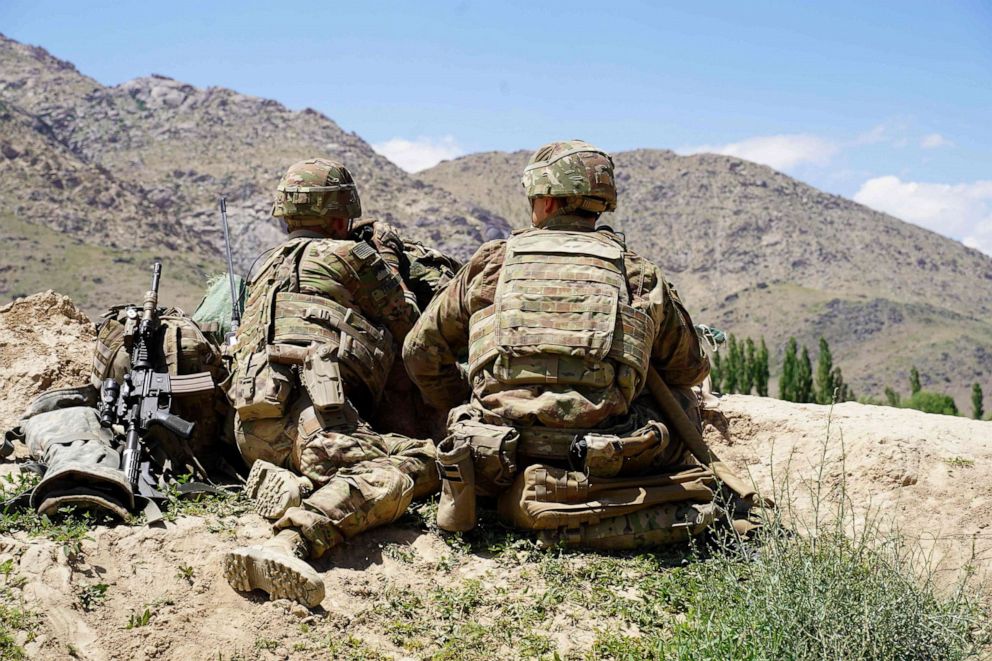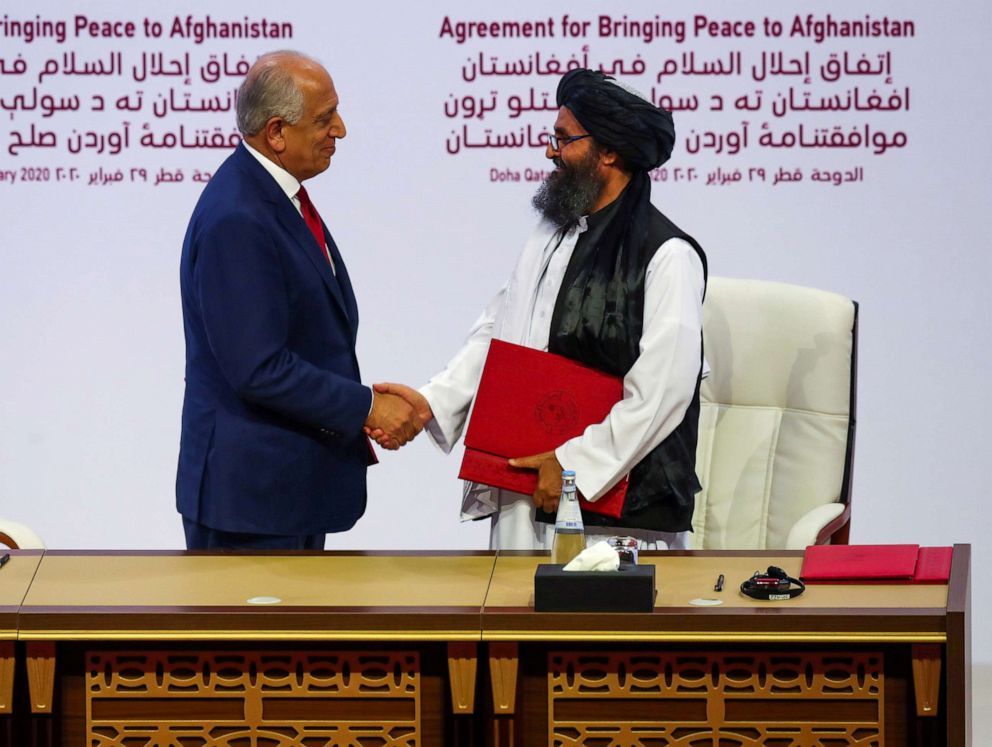FBI offers $1 million for information leading to former Taliban hostage's captors
The reward comes as the US seems to step up efforts to free another American.
The U.S. government on Tuesday offered $1 million for information leading to the capture of the Taliban militants who kidnapped and held Caitlan Coleman and her three children who were born during her five years in captivity.
The FBI "seeking information" flier posted online Tuesday offers a substantial reward to anyone with credible information on those who abducted the Pennsylvania woman and her Canadian husband Joshua Boyle in Afghanistan in October 2012 and held them until 2017 in Pakistan.
"I'm certainly happy to hear they're taking this step and hopeful that it will make justice possible," Caitlan Coleman told ABC News on Tuesday.
It's unclear why the FBI is offering the reward now. At least two Americans remain missing in Afghanistan, including commercial contractor Mark Frerichs, who was kidnapped on Jan. 31 by the Haqqani Network, a faction of the Afghan Taliban, U.S. officials believe.

The announcement of the FBI reward in Coleman's case comes one week after the agency released a poster asking for information leading to Frerichs' safe return and after chief U.S. negotiator Zalmay Khalilzad first mentioned Frerichs' name, saying in a statement that he pressed senior Taliban leaders last Wednesday to take "actions necessary to secure the freedom of" Frerichs. Khalilzad also pressed for "assistance in helping obtain the freedom of American Mark Frerichs," in a meeting with Pakistani General Qamar Javed Bajwa, the country's highest ranking military official.
On Sunday, Frerichs's family told ABC News that they are concerned he will be left behind in the peace deal the U.S. signed with the Taliban in late February. It is suspected by U.S. officials that Frerichs was kidnapped by the Haqqani Network, who also held U.S. Army Sgt. Bowe Bergdahl captive for five years and kidnapped journalists such as David Rohde and Sean Langan.
The Taliban on Monday denied that they or the Haqqani Network are holding Frerichs, but some involved in the case on the U.S. side dismissed that, saying the insurgents are known for dishonest statements.

The Haqqani Network, once led by the late Mujahideen leader Jalaluddin Haqqani -- a CIA ally when Afghans fought the Russian occupation and also a close friend and protector of al-Qaida leader Osama Bin Laden -- has killed hundreds of U.S. troops over the course of the 18-year war following the 9/11 attacks.
"The Haqqani Network has a lot of American blood on its hands and is notorious for its kidnapping of Westerners," said Eric Lebson, a former Afghanistan and Pakistan director in the Obama National Security Council.
Coleman, who grew up in rural Stewartstown, Pennsylvania, said the FBI has long contemplated offering a reward that could lead to her captors but said she had little insight into the timing of Tuesday's announcement or how it could impact Frerichs' captivity.
"I hope that, in the atmosphere of a potential peace deal and the clear message that the U.S. is pursuing justice with my kidnappers, Mark's captors will do the right thing and release him peacefully," she said told ABC News Tuesday.

While some officials doubted the U.S. would exit the war in Afghanistan without securing Frerichs' release -- particularly given that the Taliban wants 5,000 of their comrades freed by the government in Kabul -- there is precedent. The Obama administration cast aside the case of vanished former FBI Agent Bob Levinson in Iran during negotiations for the nuclear deal with the regime in Tehran in 2016 on the presumption he was dead, even though Levinson's family didn't give up hope of his survival until this year.
In a statement, a senior FBI official promised justice for Coleman but did not explain the timing.
"The FBI is dedicated to not only bring American citizens back home, but also to bring them justice after years in captivity," said Timothy R. Slater, assistant director in charge of the FBI's Washington Field Office. "Years after the Coleman family returned home, dedicated FBI special agents and analysts are still actively working to identify the family's captors. Our pursuit of justice does not end, but we also need the public's help to identify those responsible for the family's five years of captivity."
The fact that the U.S. wants to bring Coleman's captors to face justice in a court of law also is, in effect, a declaration by the government that Coleman ended up a hostage against her will, despite lingering questions regarding her now-estranged husband's sympathies for Islamic extremists.
In a lengthy interview for ABC's "Nightline" last year she said that Boyle, a Canadian, was abusive and wanted to meet Taliban commanders because he was a sympathizer. The effort went sideways when they ended up as prisoners instead.

"For the perspective of people who may still have questions of whether our five years in captivity was 'voluntary,' this certainly does clear that up. The U.S. government wouldn't offer a million dollars to catch our kidnappers if they thought otherwise," Coleman told ABC News Tuesday.
Last year, former Trump White House counterterrorism advisers Tom Bossert, now an ABC News contributor, and Chris Costa, now director of the International Spy Museum, paid Coleman's family a visit for the first time, where Caitlan and her father Jim Coleman thanked them for the Trump administration's efforts to free the family. President Donald Trump has made freeing American hostages a priority and point of pride.
Coleman has said in past interviews that she was sexually assaulted on one occasion by Taliban guards but alleged that Boyle abused her physically and psychologically throughout their ordeal. He has denied that in Canadian courts in a child custody case and a criminal trial in which he was acquitted of assaulting his wife while in Canada in late 2017.
"Not only was it psychological, it was physical, it was sexual," Coleman said on Nightline last year. "I was actually more afraid of him (Boyle) than of the captors."
Less than three months after being freed from the Haqqani network in 2017, Boyle was arrested by police in Ottawa, where they had settled, and was charged with more than a dozen offenses involving physical abuse of Coleman and one of their children. Boyle was acquitted last December, however, despite days of testimony by his wife.
During the couple's captivity, multiple senior intelligence officials said that Coleman and Boyle were sometimes living apart in Taliban compounds, which she has since confirmed. Intelligence officials told ABC News at the time that Boyle was a misguided Taliban sympathizer and that Coleman had no affection for their captors and wanted to go home.
Boyle told ABC News days before his arrest that such suspicions about his sympathies for extremists were "off base" but admitted that he had lied in public statements upon his release about providing aid to "ordinary villagers in Taliban-controlled regions of Afghanistan," and in fact had wanted to write a book offering the Taliban's perspective on the longest war.
"He would always tell me, 'I think they're misrepresented in the West. I think they're good people. When you meet them, you're gonna see,'" Coleman said last year. "So I saw. And they are, with the exception of my husband, the worst people that I've ever known in my life."




